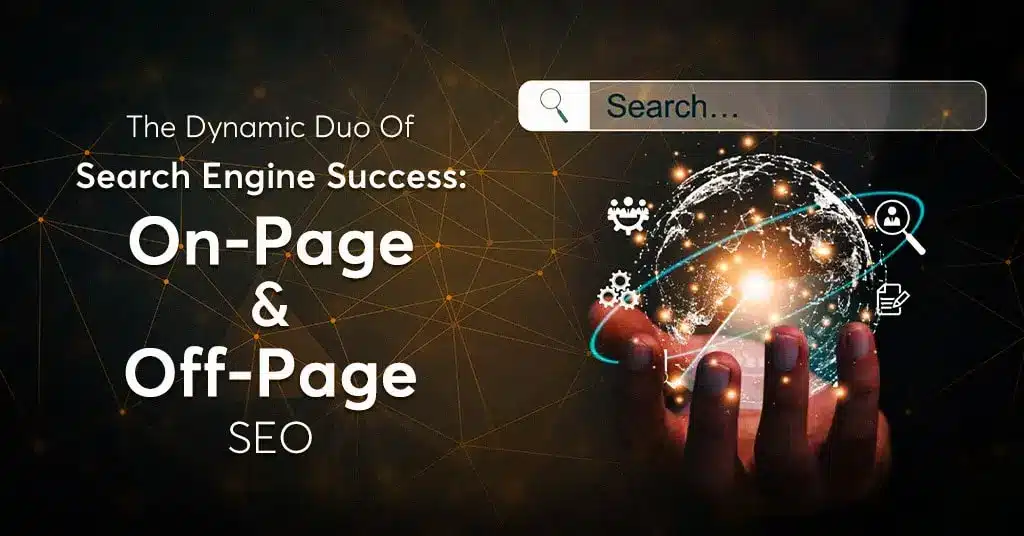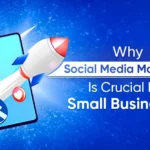To this day, even with the advent of ChatGPT, search engines continue to generate billions of dollars’ worth of traffic. Artificial intelligence like Bard and Google Bing also display the information’s original source; these original sources are among the most credible that appear in the search results. Both on-page and off-page SEO have been thoroughly optimized in these resources.
We’ll examine the similarities and distinctions between on-page and off-page SEO optimization here on the blog.
Page SEO Is All About authority And Reputation Building
While on-page SEO focuses on optimizing individual web pages, off-page SEO emphasizes improving a website’s authority, reputation, and visibility beyond its own domain. Off-page SEO involves activities that occur outside the boundaries of the website itself. Here are the key aspects of off-page SEO:
Unlinked mentions
Unlinked mentions refer to online mentions of a business or brand that do not include a link back to the website. These mentions can still provide value by increasing brand awareness and credibility. However, actively seeking to turn these unlinked mentions into backlinks can further boost a website’s authority and ranking.
Backlink Building
Backlink building is like making friends in the digital world. Imagine you’re at a school fair and want to be popular. One way to achieve that is by having lots of friends who vouch for your awesomeness. Similarly, in the online realm, backlinks are like those friends who raise their hands and say, “Hey, this website is amazing!”
Think of backlinks as recommendations or references. When other trustworthy websites link back to yours, search engines see it as a vote of confidence. It tells them that your website is trustworthy and worth showcasing to others.
For example, let’s say you’re passionate about video games, and a popular gaming blog includes a link to your website in their article. That’s a backlink! It shows search engines that the gaming blog trusts your content, and they want their readers to check you out. The more quality backlinks you have, the better your website’s chances of climbing up the search engine rankings.
Online Reputation Management
Taking care of your internet reputation is also a part of off-page SEO. Consider it similar to protecting your academic reputation. You want people to have positive things to say about you, right? In a similar vein, you want individuals searching online to think well of your company. This entails keeping an eye on reviews and answering them, even when they are unfavourable.
You must discuss a problem with consumer in the same way as you would with a friend. And when people admire you, it’s like receiving praise from your pals. All of this promotes goodwill and increases the visibility of your company online.
Social Media Engagement
Active participation in social media can be a powerful tool for promoting your content and building your brand. Think of it like throwing a party: the more people who attend and enjoy themselves, the more popular and successful the party becomes. Similarly, social signals like likes, shares, and comments on your content indicate to search engines that people are interested in and engaged with your content.
This can boost your visibility in search engines and lead to a rise in site traffic. Putting up a hilarious video on Instagram, for instance, will result in many views and shares. More people will see it thanks to Instagram’s algorithm, which will increase its popularity and visibility.
The Very Foundation Of Your Website Is On-Page SEO
On-page SEO enhances the visibility of individual web pages in search engine results pages (SERPs) and draws in targeted traffic. It entails optimizing several webpage components, including the content, Heading optimization, and internal linking structure. Here is a closer examination of the essential elements of on-page SEO:
Internal Linking
Think of your website as a large city with many streets and structures. Similar to cars traveling around, search engines are attempting to discover and understand your website. Now, it should be easier for cars to navigate and get to different buildings if the roadways are well-lit and clearly marked. That is precisely what a well-designed internal linking system for your website does.
It establishes distinct pathways and links various pages, assisting search engines in more thoroughly examining and indexing your material. It resembles constructing bridges throughout the city’s associated neighbourhoods. This enhances users’ experiences on your website by helping search engines and making it simpler for visitors to find what they’re looking for.
Core Web Vitals
Imagine attempting to open a webpage that takes an eternity to load, the buttons are unresponsive, and the visuals are constantly shifting, making it difficult to read the information. That must be annoying, right? The performance of a website in terms of speed, interaction, and stability is measured by core web vitals. For example, how quickly does the website load? How fast does it react when I click? Does the content remain static while it loads?
You can boost your website’s search engine ranking and make it simpler for users to locate and use by optimizing these elements. It’s similar to enhancing the ambiance and service of a restaurant in order to draw in more customers.
Content Optimization
Making excellent content for your website is similar to preparing a delectable meal. To make it enticing to both yourself and others, you need the proper ingredients, spices, and cooking methods. Similar to this, in order to make on-page SEO content more appealing to users and search engines, it is important to employ the appropriate target keywords, meta tags, headers, and URLs.
It’s similar like adding the correct ingredients and spices to a dish to improve its flavour. Your material should also be simple to read and interesting to your readers, much like a well-prepared dish should be. By doing all of this, you’re satisfying your audience’s thirst for knowledge and increasing the visibility of your website to people looking for similar topics.
Synergy Between On-Page And Off-Page SEO
Both on-page and off-page SEO are integral components of a comprehensive optimization strategy. While they have distinct focuses, they are interconnected and work in synergy to maximize search engine visibility. Here’s how they complement each other:
Authority and trust
You can compare on-page SEO to being a fascinating and approachable person, and off-page SEO to acquiring new relationships. When meeting someone for the first time, you want to make a good impression, right? Where on-page SEO comes in is at this point. If you’re fascinating and helpful, people will want to link to you because of the great stuff you’ve created. It’s the same as knowing a lot about a subject or having a fascinating narrative to talk about it.
People will connect to your pages if they think the information, you’ve provided is helpful. Having more websites link to your content enhances your authority and helps boost your off-page SEO efforts, just as having more friends makes you more popular.
Content Alignment
Imagine a chest stuffed with precious stones. You’re excited to show off your finds to the others and see their reactions. So, you carefully set up a stunning display, highlighting the diamonds’ most striking qualities including their vivid colours and intricate cuts. When your friends see how beautiful and pricey these jewels are, they won’t be able to keep quiet about them.
They might even make exhibits and talk to others about your magnificent treasure. The same holds true for the content found on the page. It becomes a treasure trove of useful content when you optimize it with vital keywords and trustworthy information. It draws interest and encourages people to link back to it, which boosts your off-page SEO performance.
Trust signals
You’re in a new city and looking for a trustworthy store to buy a gift. You’d feel more confident going to a store with a secure entrance, clear signs, and friendly staff, right? The same goes for websites. On-page SEO elements like secure HTTPS connections, well-structured URLs, and clear contact information are like trust-building signals.
They show users and search engines that your website is safe, reliable, and transparent, just like that trustworthy store. When people and search engines trust your website, they’re more likely to visit, explore, and recommend it to others. So, by focusing on these on-page SEO elements, you’re building trust and making your off-page SEO strategies more effective.
Keyword Research Alignment
Finding the right keywords for your website is like looking for buried gold. They can make content that search engines can readily find by figuring out what people are actually looking for. When shopping for shoes online, a consumer could enter terms like “best running shoes” to narrow down the selection.
By targeting this keyword in both their website content and their off-page backlinks, a shoe store could increase its visibility in search results and attract more potential customers. By aligning their keyword strategy across both on-page and off-page efforts, they can optimize their website for maximum success.
Improved user experience
Think about dining out with your friends. When you arrive, the menu is unclear, the tables are unclean, and the server is unwelcoming, despite your excitement to eat the dish. You become impatient and decide to leave without placing an order. Consider visiting a different restaurant where you can easily see the menu, the tables are kept tidy, and the staff is attentive and friendly.
You tell friends about your lunch and upload a photo of it to social media because you enjoyed it so much. Websites operate in the same way. Users are more likely to appreciate the experience and recommend it to others when a website opens quickly, is simple to use, and looks beautiful on mobile devices. More backlinks and social media shares could result from this, which will boost your off-page SEO performance.
Conclusion
On-page and off-page optimization are two crucial SEO pillars that cooperate to raise search engine ranks, increase organic traffic, and enhance website visibility. On-page SEO sets the groundwork by enhancing individual web pages’ content, HTML source code, and internal linking framework. On the other hand, off-page SEO increases authority, reputation, and exposure through link building, social media participation, and reputation management.
Contact Faith eCommerce to create an extensive optimization strategy that enhances your website’s ability to rank better in search engine results by combining both on-page and off-page SEO tactics. To maximize your SEO efforts’ effectiveness, remember that great content, a flawless user experience, and a strong online presence are the keys. Believing in the power of on-page and off-page SEO will help your website reach new heights.









